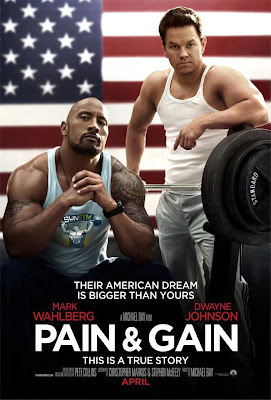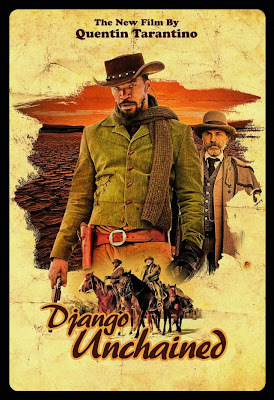‘Selma’ Is Incredible, Inspiring, and Important (Movie Review)
Martin
Luther King: The ultimate test of a man is not where he stands in moments of
comfort and moments of convenience, but where he stands in moments of challenge
and moments of controversy.
I have been told I have
something of a knack for impressions.
Not particularly in how I look or even sound, but in finding the cadence
in whatever humorous display I may be attempting to put on. David Oyelowo does not really look like
Martin Luther King, Jr., but he does more than just get the cadence of the man
down in Selma. Oyelowo is able to bring to life the presence
and soul of Dr. King in a way that is completely worthwhile in a film that
features him as both the man and the influential leader that inspired so many. That is no easy task for an actor or a film
that would want to feature such a character in the dominant role, but Selma has found a way to bring Martin
Luther King, Jr. into a film, without having to do the heavy-lifting of telling
the man’s whole story and trying to truncate all of what he accomplished into a
two-hour motion picture. Instead, fitted
with a commanding lead performance, as well as several very strong supporting
performances, and plenty of other great filmmaking-related aspects, Selma is a film that addresses a
particular time in a wonderfully impressive way that is both cinematic and quite
relevant to our current time.
Focusing in on the
Selma to Montgomery marches in 1965, Paul Webb has written a script for Selma that can both center in on a pivotal
time during the American Civil Rights Movement and function as a stirring
character drama, based around real people.
‘Real people’ is a key aspect of this film, as Selma is not one featuring caricatures of the antagonistic characters
on one side, while keeping every important figure standing up to intolerance
depicted as a saint on the other. This
is a film that tries very hard to keep things grounded and let us see the
discussions, arguments, attitudes, and whatever else that goes on with all the
various figures in this film in an effort to have us understand people for
being people. With that in mind, the
film feels a lot less like a history lesson being taught and more like a strong
acting exercise, which happens to be centered on an important time in America.
I can keep focusing in
on how much of a human-based drama this film is, because that really is what I
enjoyed about it. Putting aside the
aspects that get one riled up about treatment of individuals based on the color
of their skin and the politics that come with conversations between Dr. King,
President Lyndon Johnson (Tom Wilkinson), and Governor George Wallace (Tim
Roth), among others, Selma has the
structure of a drama about people talking, with some occasional, intense
cinematic moments, all crafted and executed incredibly well by director Ava
DuVernay. That is really what I am proud
to see in a film about Martin Luther King, Jr.
No doubt, anyone is in a difficult position when it comes to telling the
story of one of the most important leaders of the 20th century, but
based on both a script that is taking that sort of challenge into account and
the fact that this is a fairly low-budget feature with only so many resources
at its disposal, Selma practically
has the semblance of a scrappy underdog sort of film that has come out on top
in the best of ways.
Putting the focus back
on David Oyelowo, in a film that does not feature any of King’s notable speeches
in full, due to the film not having the rights to use them, we see an actor
convey through his eyes and in his actions taken in various moments really
delve into the persona of someone who is aware of the kind of status he has,
but who is also a husband, a father, and a man both pleased and frustrated by
what he must deal with in life. The film
begins with a nice moment of Dr. King rehearsing a speech and putting on one of
his ties, only to be helped by his wife, Coretta Scott King (Carmen Ejogo). The two face more impactful moments later in
the film, with a spotlight that could easily be placed on a scene delving into
possible infidelities, but it’s a simple start to keep us focused on Dr. King
as a man and not the towering figure that he could easily be depicted as, with
a performance that could perhaps match the stature of the man being portrayed,
but not as easily get across what comes from within. That was an issue in last year’s Mandela, where Idris Elba did a fine job
in a story that was trying to encompass too much of a notable figures life into
a single film. Meanwhile, Selma is much more in line with Steven Spielberg’s
superb Lincoln, which also had a
tight focus on one time in the life of a tremendous figure and the backing of a
great performance to really capture a version of the man in question, while
delivering on the aspects surrounding his character in that film’s story.
As I have been stating,
this approach to the characters and the film as a whole is a big part what
makes me admire Selma, but there is
more to speak to involving Selma’s importance
today. So often do we see historical
dramas and biopics focused on events that had a cultural impact important
enough to be seen portrayed cinematically years later. Only so often do we see these films connect
thematically or quite literally to the events of the time in which these films
are released. Without diving too
explicitly into what is going on in the current American climate, a film such
as Selma, which is focused on the
passage of the Voting Rights Act and hostile force used against unarmed civilians
participating in protest marches, has plenty of relevance in today’s current
climate. There may be some coincidence
in the timeliness of the release of this film, though DuVernay has been working
up until recently to finally finish the feature, but I would hardly say the
film stumbles by featuring a closing song by John Legend and Common (who
co-stars in a small role) that lays out some pretty clear thoughts on what has
and is going on. No, Selma did not have to be a film that
matches up to events of today, but the fact that it can both stand on its own
as well as function as a reflection of where society is currently easily makes
for a film that I can more readily invest in, as well as champion for being
more than just an automatic awards contender, just because it is an MLK drama.
To delve into the other
aspects of the film; from a technical standpoint, Selma is equally wonderful.
You get a sense of the times thanks to the production and costume
design, among other aspects. Thanks to
some fine cinematography and crafty editing, the staging of certain scenes,
particularly the marches, leads to impactful moments that do exactly what is
required to convey what violent events took place, without feeling
exploitative. Helping these aspects
along in the film even more is the decision to really dial down the need for
tireless explanation of every event. A
quick prompt of the year and location is put on display, but Selma trusts its audience enough to not
have to dictate every action taking place.
Add a simple, yet effective score by Jason Moran and Selma is a film that lasts for just over
two hours and feels like a true accomplishment throughout in nearly every
respect.
There is a lot to
appreciate in Selma. It is well-acted and well-produced, making a
big name for director Ava DuVernay and writer Paul Webb, and a much bigger name
for David Oyelowo, who has been rising in the ranks in recent years. Plenty of credit goes to the supporting cast
as well, particularly Tom Wilkinson, along with the whole crew behind this
film. An amazing film came from what
must have been amazing effort from a team of people that knew what they were getting
into and wanted to get it right. Selma was the result and it is an extraordinary
achievement.
Martin
Luther King: The battle is in our hands.
And we can answer with creative nonviolence the call to higher ground to
which the new directions of our struggle summon us. The road ahead is not altogether a smooth
one. There are no broad highways that
lead us easily and inevitably to quick solutions. But we must keep going.











Comments
Post a Comment